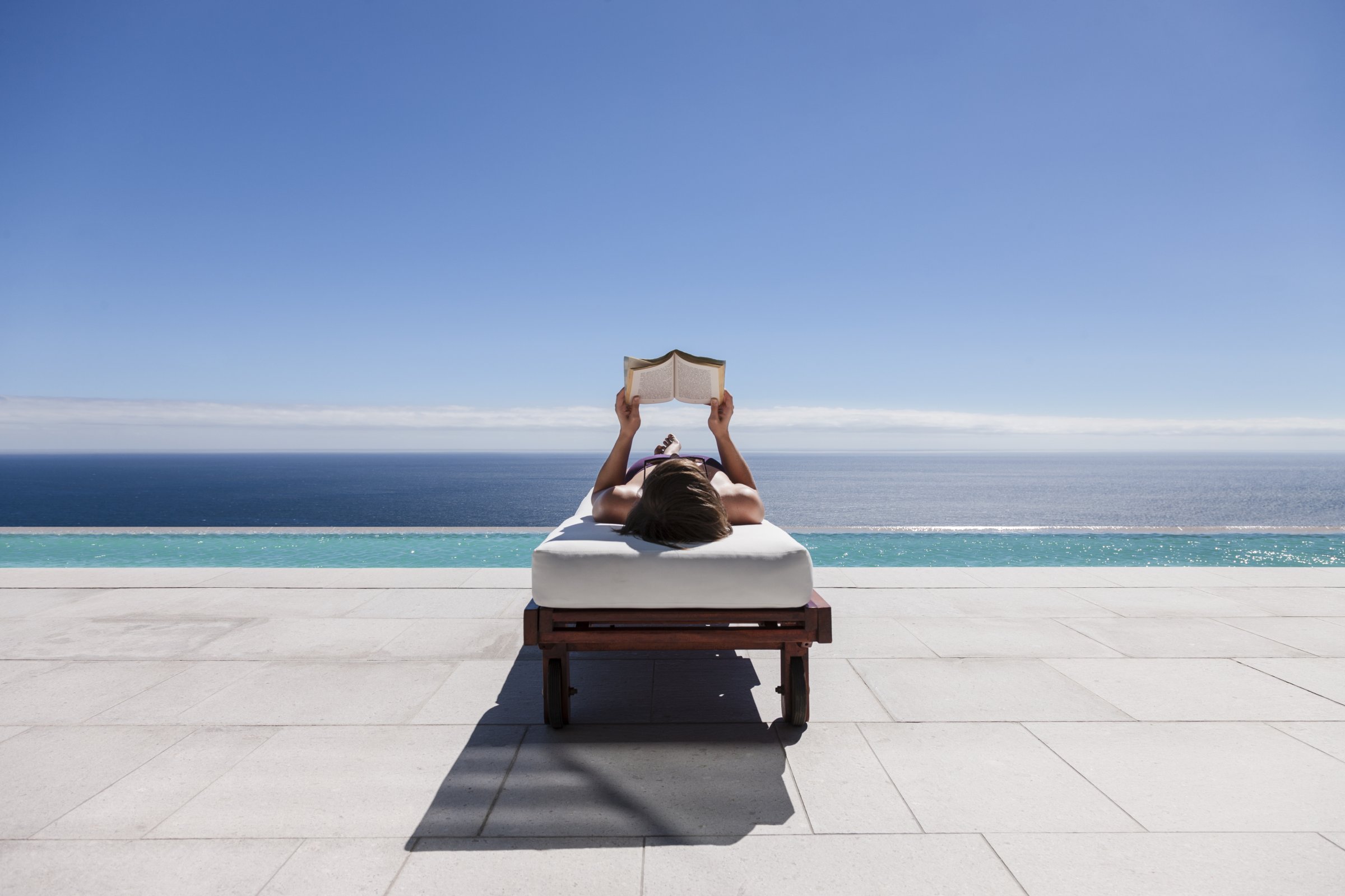
You come home from a glorious, relaxing getaway only to realize there’s a mountain of emails, laundry, and obligations waiting for you—and suddenly you’re a giant ball of stress, longing to be back on the beach (or wherever your travels took you) without a care in the world. Sound familiar?
We’ve all been there. Returning to your normal routine after a trip can be daunting. But there are ways to make the transition less painful, says Jaime Kurtz, PhD, associate professor of psychology at James Madison University and author of The Happy Traveler: Unpacking the Secrets to Better Vacations ($20, amazon.com). Here, she offers tips on how to transport your chill vacay vibes home with you.
First, plan ahead for a smooth return
Before you leave town, try to wrap up any projects you’re working on, and delegate important tasks to colleagues. (You’ll owe them when it’s their turn to vacay!) “Tie up as many loose ends as you can before you leave, so you don’t come back to unfinished business that’s just been piling up,” says Kurtz. And remember to turn on your out-of-office auto-response, she adds, even if you plan to check your email periodically. That way you give yourself time to dig out of your inbox when you get back, since everyone knows you’ve been away from your desk.
Come back early (yes, you read that right)
“There’s always that temptation to stretch your trip out as long as possible, and sort of suck the life out of it,” says Kurtz. But that can backfire: “If you come home and have to immediately turn around and go to work the next day, the relaxing benefits of the vacation are pretty much lost.” It’s best to give yourself a little buffer, she says. Come back a day early. Or if it’s a short trip, travel home in the late afternoon rather than late at night.
“Think about what you need to do when you get home and give yourself the time to do it,” says Kurtz. “I like to have time to unpack, do the laundry, go grocery shopping, and just feel like I’m ready to get back into real life like an organized and calm person.”
Ease back into your schedule
Booking a 6 a.m. spin class on Monday morning might seem like a good way to motivate yourself for the week ahead. But Kurtz recommends against scheduling anything too intense on your first day back. Try to keep your calendar clear of meetings, too, until you’ve had a chance to play catch up. The idea is to transition as gently as possible, she says. “You don’t want to jump back in and have a million things on your mind. That’s kind of shocking to the system.”
Have something to look forward to
“Sure, you have to go back to work, but maybe plan to have dinner or a drink with a friend that night,” says Kurtz. Or pencil in an activity that you love, like a sunset hike with your dog (who missed you terribly!), for example. This way coming back to reality won’t feel quite soooo tragic.
More Must-Reads from TIME
- Inside Elon Musk’s War on Washington
- Meet the 2025 Women of the Year
- The Harsh Truth About Disability Inclusion
- Why Do More Young Adults Have Cancer?
- Colman Domingo Leads With Radical Love
- How to Get Better at Doing Things Alone
- Cecily Strong on Goober the Clown
- Column: The Rise of America’s Broligarchy
Contact us at letters@time.com